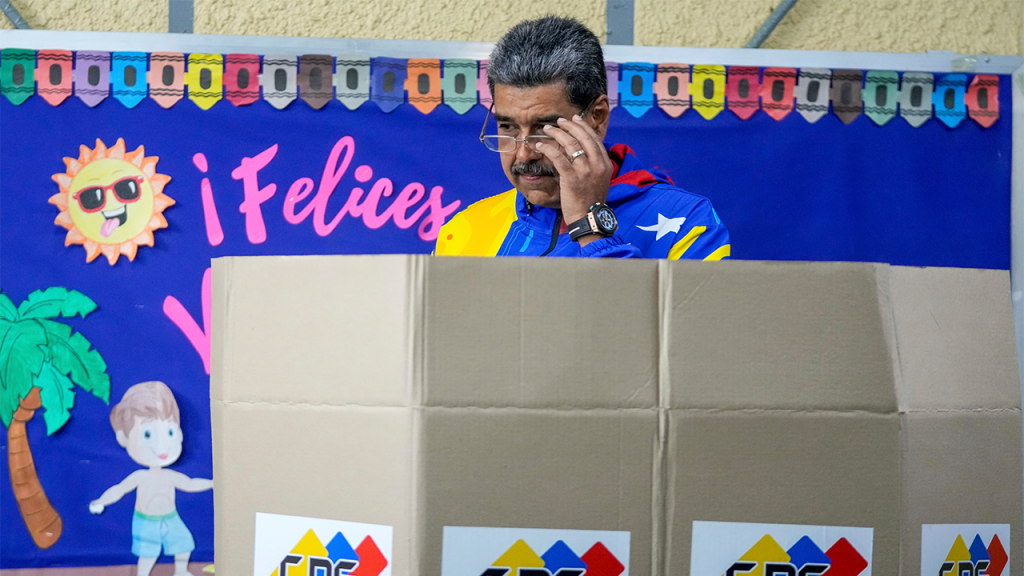Venezuela’s President Nicolás Maduro was declared the winner of the country’s presidential election, securing more than 50% of the vote, according to the National Electoral Council. The opposition, led by candidate Edmundo González, contests the accuracy of the results. Despite being declared the winner of a third term, the opposition claimed victory as well, setting the stage for a showdown with the government over the results. The electoral authority, controlled by Maduro loyalists, faced criticism for not immediately publishing the results from all polling stations, hindering the opposition’s ability to challenge the outcome.
Opposition leader Maria Corina Machado claimed that González had an “overwhelming” margin of victory based on voting results collected from about 40% of the ballot boxes across the country. Officials and lawmakers, including U.S. Secretary of State Antony Blinken and U.S. Sen. Marco Rubio, expressed skepticism about the validity of Venezuela’s presidential election results, with Blinken stating that the U.S. had “serious concerns” about the announced outcome. Chilean President Gabriel Boric Font emphasized the need for transparency in delivering the election results that fully reflect the popular will expressed at the polls, calling on the international community to reject anything else.
The opposition in Venezuela alleged that the election results did not accurately represent the will of the Venezuelan people, with concerns raised about the transparency and legitimacy of the process. While the National Electoral Council declared Maduro the winner based on 80% of voting stations, the opposition cited discrepancies in the data provided and called for full disclosure of the results to verify the outcome. Despite claims of victory by both the government and the opposition, the political situation in Venezuela remained tense, with the possibility of further challenges and protests over the election results.
Amidst the controversial election outcome, experts warned that Maduro could have manipulated the results to secure his victory, given the control his government has over the electoral authority. The opposition’s limited access to polling station data raised doubts about the transparency of the electoral process and fueled suspicions of electoral fraud. International observers and foreign leaders urged Venezuelan election officials to release the full results promptly to ensure transparency and uphold democratic principles, urging the government to respect the will of the electorate and address concerns about the legitimacy of the election.
The U.S. government, along with other countries and international organizations, expressed concerns about the credibility of Venezuela’s presidential election results, calling for a transparent and accurate reporting of the outcome. U.S. Senator Marco Rubio characterized the election as a sham carried out by the Maduro regime, while Chilean President Gabriel Boric Font emphasized the importance of reflecting the popular will of the voters in the results. The opposition’s claims of victory based on partial tallies indicated a deep divide in Venezuelan politics, with conflicting narratives about the electoral process and the legitimacy of Maduro’s presidency.
As tensions escalated following the announcement of Maduro’s victory in Venezuela’s presidential election, the country faced a political crisis characterized by disputed election results and allegations of electoral fraud. The opposition’s challenge to the outcome, backed by international skepticism and calls for transparency, underscored the deep divisions within Venezuelan society and the ongoing struggle for democratic governance. The implications of Maduro’s contested reelection for Venezuela’s future stability and international relations remained uncertain, as the country grappled with the fallout from a contentious and disputed electoral process.


